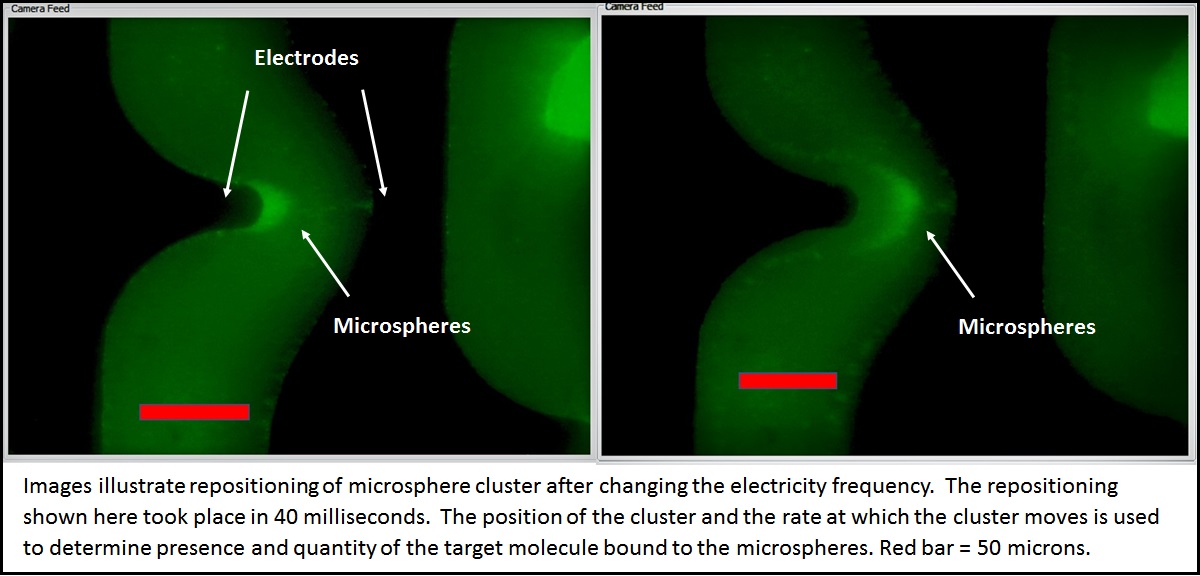Rapidly Detect and Quantify Picomolar Concentrations of Compounds in Complex Solutions (RFT-548)
Invention Summary
Scientists at NDSU have developed a technology that enables a table-top device for rapid detection of a known molecule in a complex solution, such as blood or solutions containing debris from lysed cells. Potential applications include diagnostics, prognostics, and biomarker discovery, with improved performance, speed, and reliability as compared with Surface Plasmon Resonance (SPR) and ELISA. Compounds that can be detected using this system include any protein, peptide, or another molecule that binds an antibody, and DNA and RNA biomarkers that bind to a known complementary sequence. The technology uses microbeads to which (for example) a specific antibody has been attached, and uses negative dielectrophoresis (DEP) spectroscopy to determine whether, and how much, a target molecule is bound. A newly designed electrode produces highly predictable and repeatable behavior on the part of the microbeads. Upon exposure to the electric field, the microbeads migrate and reposition very quickly, and this behavior is followed optically so that results are available visually, and within about one minute after the sample slide is placed into the device.

Benefits
- Detection down to approximately 10 picomolar concentrations of the target molecule
- Faster and greater accuracy than current methods, because the target molecule need not be purified
- Improved reusability and consistency compared with SPR, because antibodies are attached to microspheres rather than electrodes, and there is no degradation of performance due to cleaning of the device.
- Faster than ELISA, with fewer components, fewer steps, fewer false positives, and improved sensitivity.
- Label-free (doesn’t require a fluorescent molecule) so no signal calibration is needed
Patents
This technology is patent pending in the US (US 2019/0234902) and is available for licensing/partnering opportunities.
Downloads
Download the technology summary (PDF, 316.31 KB)
Contact
NDSU Research Foundation
info@ndsurf.org
(701)231-8173
NDSURF Tech Key
RFT, 548, RFT548
Inquire about this technology >